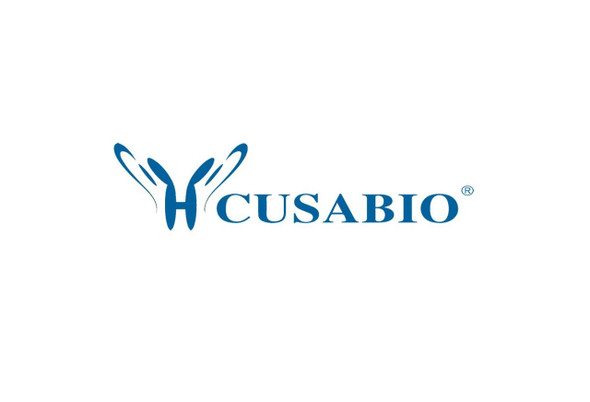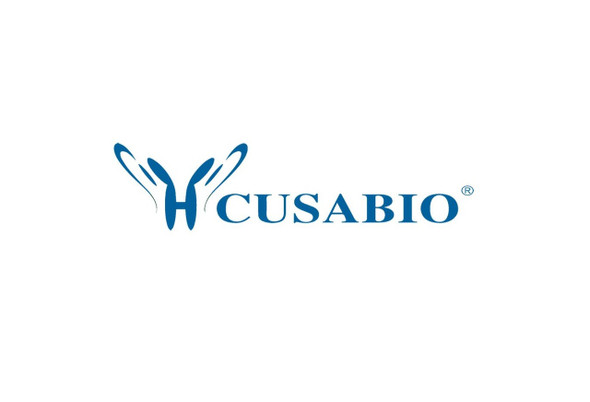Cusabio Mycoplasma pneumoniae Recombinants
Recombinant Mycoplasma pneumoniae Lon protease (lon), partial | CSB-EP305230MLW
- SKU:
- CSB-EP305230MLW
- Availability:
- 13 - 23 Working Days
Description
Recombinant Mycoplasma pneumoniae Lon protease (lon), partial | CSB-EP305230MLW | Cusabio
Alternative Name(s): ATP-dependent protease La
Gene Names: lon
Research Areas: Cell Biology
Organism: Mycoplasma pneumoniae (strain ATCC 29342 / M129)
AA Sequence: MPAVKKPQILVVRNQVIFPYNGFELDVGRERSKKLIKALKNLKTKRLVLVTQKNSDQLNPEFDDIYHCGTLCDIDEIIEVPSEDGKTADYKIKGKGLQRVAITSFSDADLTKYDHHFLNSTLTENKALDKLLERIFPDKEDFAEILDSLNSFLELQELKKLSKVPKDIKRYDIITFKLASLIFKDITLQQAILEENDIEKRLQKII
Source: E.coli
Tag Info: N-terminal 6xHis-SUMO-tagged
Expression Region: 1-206aa
Sequence Info: Partial
MW: 39.8 kDa
Purity: Greater than 90% as determined by SDS-PAGE.
Relevance: ATP-dependent serine protease that mediates the selective degradation of mutant and abnormal proteins as well as certain short-lived regulatory proteins. Required for cellular homeostasis and for survival from DNA damage and developmental changes induced by stress. Degrades polypeptides processively to yield small peptide fragments that are 5 to 10 amino acids long. Binds to DNA in a double-stranded, site-specific manner.
Reference: "Complete sequence analysis of the genome of the bacterium Mycoplasma pneumoniae."Himmelreich R., Hilbert H., Plagens H., Pirkl E., Li B.-C., Herrmann R.Nucleic Acids Res. 24:4420-4449(1996)
Storage: The shelf life is related to many factors, storage state, buffer ingredients, storage temperature and the stability of the protein itself. Generally, the shelf life of liquid form is 6 months at -20?/-80?. The shelf life of lyophilized form is 12 months at -20?/-80?.
Notes: Repeated freezing and thawing is not recommended. Store working aliquots at 4? for up to one week.
Function: ATP-dependent serine protease that mediates the selective degradation of mutant and abnormal proteins as well as certain short-lived regulatory proteins. Required for cellular homeostasis and for survival from DNA damage and developmental changes induced by stress. Degrades polypeptides processively to yield small peptide fragments that are 5 to 10 amino acids long. Binds to DNA in a double-stranded, site-specific manner.
Involvement in disease:
Subcellular Location: Cytoplasm
Protein Families: Peptidase S16 family
Tissue Specificity:
Paythway:
Form: Liquid or Lyophilized powder
Buffer: If the delivery form is liquid, the default storage buffer is Tris/PBS-based buffer, 5%-50% glycerol. If the delivery form is lyophilized powder, the buffer before lyophilization is Tris/PBS-based buffer, 6% Trehalose, pH 8.0.
Reconstitution: We recommend that this vial be briefly centrifuged prior to opening to bring the contents to the bottom. Please reconstitute protein in deionized sterile water to a concentration of 0.1-1.0 mg/mL.We recommend to add 5-50% of glycerol (final concentration) and aliquot for long-term storage at -20?/-80?. Our default final concentration of glycerol is 50%. Customers could use it as reference.
Uniprot ID: P78025
HGNC Database Link: N/A
UniGene Database Link: N/A
KEGG Database Link: KEGG
STRING Database Link: N/A
OMIM Database Link: N/A









